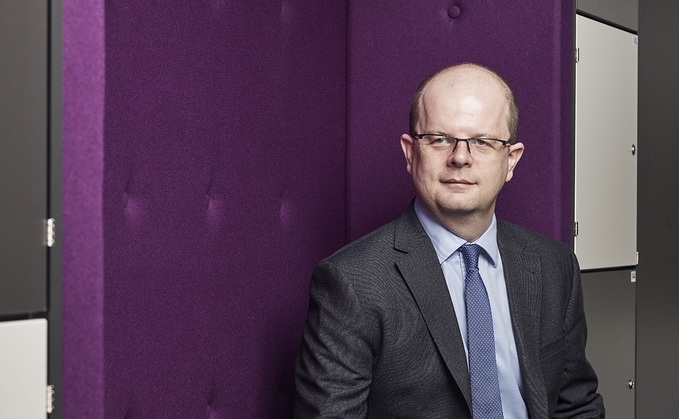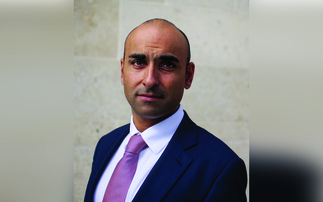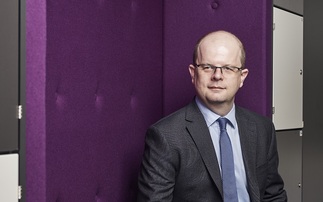
Mike Fox, Head of Sustainable Investments, Royal London Asset Management
Sustainable investing's rapid growth over the past decade has changed the face of investing. Today there are more funds than ever using a structured framework to maximise both the value and impact of their investments.
At the same time, a difficult economic market and soaring inflation suggests finding the best investments that will make a difference in environmental, social or governance terms is much harder.
Yet according to Mike Fox, Head of Sustainable Investments and Fund Manager at Royal London Asset Management, this macro-outlook is much less important than people realise. In fact, Fox argues people are overweighing negative trends versus positive ones and exciting investment opportunities are being missed.
"The last 12 months has been all about interest rates and inflation; questions about if we will move into a recession or not. Yet the companies we meet and invest in are significantly more optimistic about the future," he explains.
Fox believes in 10 years' time, 2023 will not be remembered as the year where inflation topped 10%, or interest rates rocketed. Instead, the focus will be on micro trends in a range of industries - the year when certain diseases became treatable, AI became more usable, and a decarbonised infrastructure finally started to be built.
Atoms, bytes, and genes
Fox introduces the concept of "atoms, bytes, and genes" as a framework for understanding investment opportunities from a sustainable perspective. He explains that atoms represent material science, while genes symbolise drug development, and bytes signify digitisation and artificial intelligence.
His framework suggests that the real innovation boom is occurring in these three areas, and there are opportunities for sustainable investing within well-established companies like AstraZeneca and Microsoft.
He emphasises that these areas align well with sustainable funds for several reasons. Sustainable investing is inherently optimistic and future oriented; it thrives on innovation and seeks companies that contribute positively to society's advancement and solve existing problems.
"The more the world improves, the more the world innovates, the more the world comes up with new things that are going to solve existing problems, the better it is for sustainable funds," he explains.
Harnessing Inefficiencies
Fox suggests that sustainability can be defined as an inefficiency in financial investing because it's still, despite its recent rise in prominence, a relatively immature field with a lot of scepticism. Unlike the financial side, it relies more on words than numbers and subjectivity.
Fox explains: "There's a lot of discussion about rating agencies on the ESG side of things and they're no different to sell side analysis on the financial side, it's just an opinion or view."
As a result, Fox says they go back to the source of the information, conducting research themselves to create a framework to investing.
He adds; "I think data allows you to flush out the companies that are truly performing well and the ones that aren't. You often find companies that people have quite a negative perception of for whatever reasons; actually, when you look at the data they're pretty good."
Sustainable stereotypes
Within his investment philosophy, Fox has four key factors he looks for when searching for sustainable investment options.
"Products and services, ESG leadership, value creation, valuation; those are the four things that we will look at to decide whether something is worth investing in. We have found that as an investor we must observe the operations of a company; that is its ESG standards effectively. Then on the financial side it is about looking at value creation: has it had any value financially as a business? Can you buy it at a reasonable price?"
Yet it is equally important not to get sucked in by what appears to be a good sustainable story or simple thematics. After all, there are plenty of great themes that make no money for anyone, he says.
"Sustainability is everywhere and nowhere. You can find sustainability in Greggs, you can find sustainability in AstraZeneca. But investors must not get sucked into stereotypes about what sustainability can or can't be. There are so many different views on a company, so it must come back to your own definitions.
"Understand that sustainability comes in many shapes and sizes and there are many companies out there that just because they're not trying to save the world, they are actually great corporate citizens and worthy of investment."
Find out more about Royal London Asset Management's Sustainable Investing please visit Sustainable investing | Intermediaries | RLAM
This post is funded by Royal London Asset Management
The value of investments and the income from them may go down as well as up and is not guaranteed. Investors may not get back the amount invested.
For Professional Clients only, not suitable for Retail Clients.
This is a financial promotion and is not investment advice. The views expressed are those of the author at the date of publication unless otherwise indicated, which are subject to change.
For more information on the funds or the risks of investing, please refer to the Prospectus and Key Investor Information Document (KIID), available on the relevant Fund Information page at www.rlam.com.
Issued in September 2023 by Royal London Asset Management Limited, 80 Fenchurch Street, London, EC3M 4BY. Authorised and regulated by the Financial Conduct Authority, firm reference number 141665. A subsidiary of The Royal London Mutual Insurance Society Limited.











